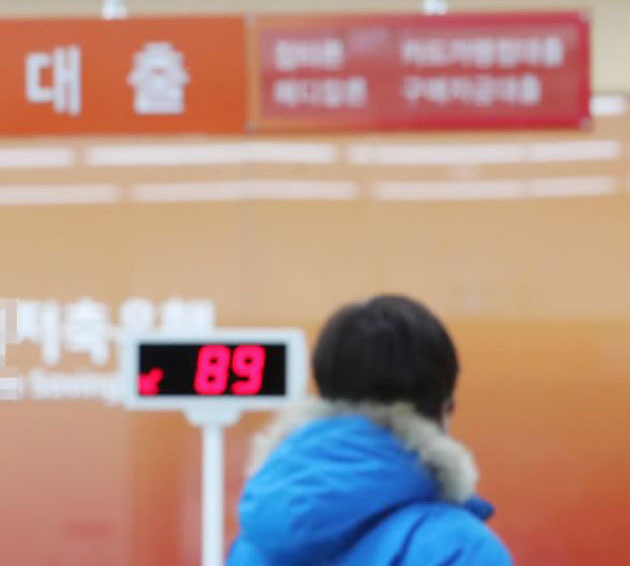South Korean savings banks' household loans have spiked 21 percent over the past year to hit a record high despite their high interest, data showed Wednesday.
Savings banks' outstanding household lending came to 20.2 trillion won ($17.9 billion) as of end-July, up 20.9 percent from a year earlier, according to the data from the Bank of Korea.
It has surpassed the 20 trillion-won mark for the first time and represents the highest level since December 2007, when the central bank started to compile related data.
Saving banks' household loans grew at a slower click in the first half of this year than a year earlier, but they began to pick up in the second half.
Such lending expanded by 385 billion won in July, and the Financial Supervisory Service estimated the August gain at around 400 billion won. The BOK has yet to disclose its official data for last month.
Savings banks' outstanding household lending came to 20.2 trillion won ($17.9 billion) as of end-July, up 20.9 percent from a year earlier, according to the data from the Bank of Korea.
It has surpassed the 20 trillion-won mark for the first time and represents the highest level since December 2007, when the central bank started to compile related data.
Saving banks' household loans grew at a slower click in the first half of this year than a year earlier, but they began to pick up in the second half.
Such lending expanded by 385 billion won in July, and the Financial Supervisory Service estimated the August gain at around 400 billion won. The BOK has yet to disclose its official data for last month.

Market watchers attributed the surge to the government's recent measures to cool an overheating housing market, which prompted borrowers to turn away from commercial lenders to savings banks.
Early last month, the government unveiled the measures, including the designation of areas under close state scrutiny, tougher mortgage rules and heavier capital gains taxes, in a bid to rein in snowballing household debt.
In South Korea, people with poor credit have no other option but to seek high-rate loans from savings banks and microfinancing companies as they have little access to loans offered by commercial banks. In July, savings banks charged an average interest of 15.23 percent on household loans, 4.4 times the 3.46 percent charged by commercial banks.
Savings banks' household loans account for a mere 1.4 percent of total household debt valued at some 1,400 trillion won, but authorities should keep close tabs as many poor-credit, low-income people take out loans from them, analysts said.
The government has been doubling down on curbing snowballing household debt, a perennial bugbear for policymakers, as it is seen as a "time bomb" for Asia's fourth-largest economy, struggling with slowing exports and flaccid domestic demand. (Yonhap)




![[Herald Interview] 'Amid aging population, Korea to invite more young professionals from overseas'](http://res.heraldm.com/phpwas/restmb_idxmake.php?idx=644&simg=/content/image/2024/04/24/20240424050844_0.jpg&u=20240424200058)












![[KH Explains] Korean shipbuilding stocks rally: Real growth or bubble?](http://res.heraldm.com/phpwas/restmb_idxmake.php?idx=652&simg=/content/image/2024/04/25/20240425050656_0.jpg&u=)

